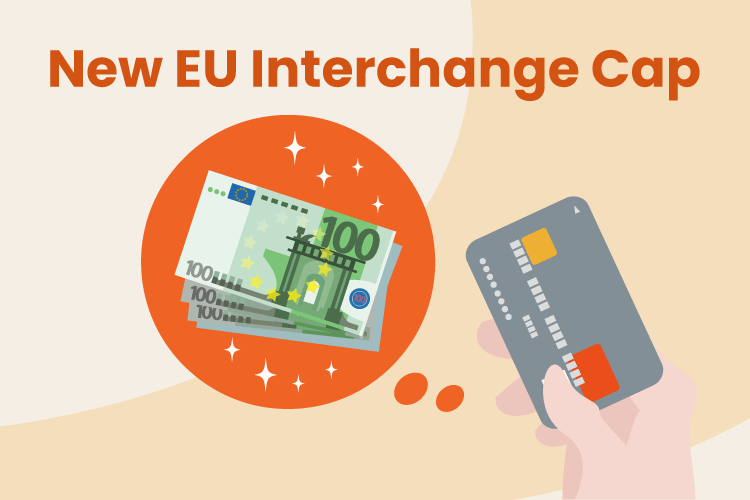After years of battling, Visa and Mastercard have each separately reached an agreement with the European Commission over their multilateral interchange fees (MIF) on foreign cards. The move will save retailers about 40% of what they were previously paying in transactional fees.
Credit/Debit Interchange Fees Explained
Credit card fees and rates are notoriously difficult to decipher. Retailers must pay a certain percentage of each credit or debit purchase to processors and card networks for the convenience of facilitating a successful and secure transaction. One of the major fees administered (somewhere between 70-90% of the total) is the interchange rate.
The interchange rate is comprised of hundreds of different smaller fees, each based on differing factors. Therefore, the fees are not actually static; retailers can make adjustments to lower them. Any factor that increases the risk of fraud, for instance, will drive the rates up. But retailers can diminish these rates only so far. After all, interchange fees are a major source of revenue for card networks. The average interchange rate varies by type of transaction, but the entire processing fees typically lie somewhere around 2-2.5%.
EU Sets New Interchange Cap
However, the European Union (in addition to several other governing bodies across the world) has long fought against seemingly egregious fees attached to debit and credit transactions. In fact, initial investigations began in 1997. Years after launching an antitrust investigation into the major card companies, an agreement was met between Visa/Mastercard and the EU to put a cap on interchange rates for all transactions at 0.2% and 0.3% for debit and credit purchases, respectively (Visa and Mastercard had already been abiding by these guidelines for years, but it became legal in 2015). They also capped card-not-present (CNP) and online interchange rates at 1.15% for debit and 1.50% for credit transactions.
By doing so, they hoped that fee structures would be simplified and retail prices would not be artificially inflated. High fees, they argued, are directly passed on to the merchant and then indirectly absorbed by the consumer. In an effort to solidify the regulation, there are no loopholes or other means of circumventing the rule. Furthermore, the MIF cap is in place for 5.5 years.
The European Commission also pushed for more transparency among the fees charged. Each transaction must come attached with a reference number, and the costs of interchange and service fees must be clearly differentiated.
The new law only regulated transactions involving cards from members residing within the EU, however.
European Commission Regulations Now Cover Inter-Regional MIF
More recently, added pressure from further antitrust battles now adds the same regulation on all purchases in the EU made with foreign cards. This is great news for European retailers, who now save an estimated 40% on processing fees for any purchase made with a non-EU Visa or Mastercard card. The new inter-regional interchange fee rates now match those already administered to transactions made with local cards. This is the first instance of an international governing authority intervening and regulating inter-regional MIFs.
Again, two separate but identical deals were reached between the card networks and the EU. Officials celebrated the decision, claiming it will save the merchants money, thereby keeping consumer prices down. European Commissioner for Competition Margrethe Vestager made the announcement:
“Mastercard and Visa have committed to significantly reduce the interchange fees applied to payments made in Europe with cards issued elsewhere. The commitments, which are now binding on Visa and Mastercard, will reduce the costs borne by retailers for accepting payments with cards issued outside the EEA. This, together with our January 2019 decision on Mastercard’s cross-border card payment services, will lead to lower prices for European retailers to do business, ultimately to the benefit of all consumers.”
Failure to comply with these interchange standards can result in steep fines of up to 10% of the card network’s total volume. Relatedly, Mastercard is being fined $650 million by the European Commission for its interchange rates prior to 2015 and limiting its retailers from finding better rates.
How Your Business Can Save Money on Interchange Rates
Interchange rates are only one part of the entire credit card processing agreement. Merchant services can be confusing. They can also have a huge effect on your business. So it’s vital as a business owner to understand what you’re paying for without having to pour over the fine print. We’ve put together a guide to the difference between POS and merchant services to help our retailers. KORONA POS is not a processor, but we integrate with nearly every payment processor out there. This gives you more freedom to choose a solution that works for your business and keeps your costs down. Give us a call to find out more!
Payment processors
giving you trouble?
We won’t. KORONA POS is not a payment processor. That means we’ll always find the best payment provider for your business’s needs.











